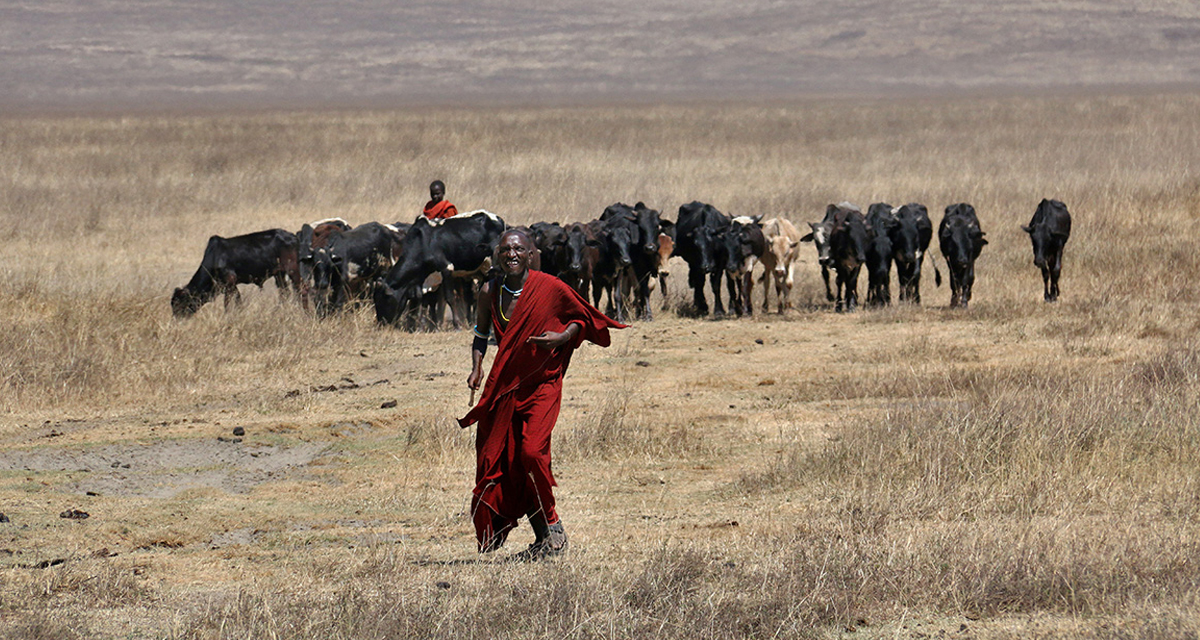Wednesday 1 April 2020 / 21 Days Lock Down Reflection
Cultures have always intrigued me.
Spending some time in Tanzania and Kenya I have become increasingly more interested in the Maasai culture. What intrigued me was that I found it still very much alive across both borders. This led me to start asking certain questions. What is the magic thread holding this cultural blanket together? How does one define a culture, what is the glue that holds it all together?
I wonder how the current unfolding of this pandemic will affect these special people. How does one prompt a Maasai to quarantine? Their home is the grasslands, they are nomadic tribes.
I believe the age old culture of the Maasai has some important things to ponder in navigating this modern day landscape, particularly in Africa. How did this culture survive through so many changes in history? How is it possible that so many of their own values are still practiced in tact across vast distances over two different countries each with their own laws and structures? Even more remarkable is that the Maasai are able to move freely through the Savannah regions with their cattle across borders, though this movement has become more threatened in the changing political landscape. Besides this, climate change is extending years of dry seasons in East Africa, and long droughts are threatening these tribes with extinction. Due to extended dry seasons their crops and resources are dying, leaving them with unsustainable food supplies or sufficient source of water.
When I look out at the world around me I see a perceived existing reality in the process of crumbling on multiple levels. Economies world over are under threat with many businesses on the brink of collapse. Governments around the world have given themselves to corruption not authentically serving the interests of the people. Climate change is no longer a slogan but a very real threat, the effects of which we will see and are already seeing unfold in our lifetime. There are a multitude of problems we are faced with as a society on a daily basis. Food security, the pollution of or water, the pollution of our seas, the pollution of or land.
The age of the hippie did not pan out too well, but neither has the age of capitalism. Enriching only a few at the expense of the masses an in its wake there is a complete disregard for all things sacred from the continuous obliteration and slaughter of indigenous cultures to the annihilation and plunder of our natural resources. Humankind is set to still to pay a huge price for their ills; and yet in the face of it the wave does not stop its growth – more people, more power, more stuff, more disease, more plastic, more unhappiness … everywhere.
Traveling back to Nairobi airport after my time in Kenya, I had many burning questions. “What makes a Maasai authentic?” I prompted our guide, “How does one identify an imposter? You see them sometimes in the city dressed in their traditional cloth and sandals, but how do you know for sure they are Maasai?”
Passing through a small town there was a Maasai herdsman with his cattle grazing near the verge of the road. “You see that Maasai over there? Tonight he will sleep amongst his cattle. Only a true Maasai would do that. He will protect his cattle with his life.
The Maasai’s entire way of life has historically depended on their cattle. Their cattle is their life blood. Wealth is measured by the extent of ones livestock. They are the ultimate African shepherds, authentic guides to their flock. The Maasai have been given grazing rights in many of the game parks along the Great Rift regions. It is interesting to note that these game parks, integrated with Maasai culture are thriving. Their life of living in harmony with all of nature is truly evident. Given that this culture is itself facing many modern day threats to abandon their nomadic lifestyle, it still stands strong in the plains below two of Africa’s great mountains, Mt. Kenya and Mt. Kilimanjaro. It is a culture that has survived under some extreme conditions. I sure hope to see the Maasai culture alive in our changing future.
It is said that a Maasai warrior will defend his herd, with nothing less than his spear, even against a charging lion. It is not just the size of the herd that determines wealth in the Maasai culture, but the well-being and sustainability of the herd. I believe the Maasai culture is built on valuable principles. These are principles of life, they do not change. They become the glue that holds it all together, upholding the community in a very positive way.
I suggest that much can be gained from learning from this ancient and beautiful culture. As vital as it is to have vision, we must also not forget our roots. Are we laying these down in a strong enough soil that will carry us into the future? In a movement that will survive the trials and tribulations yet to come?

